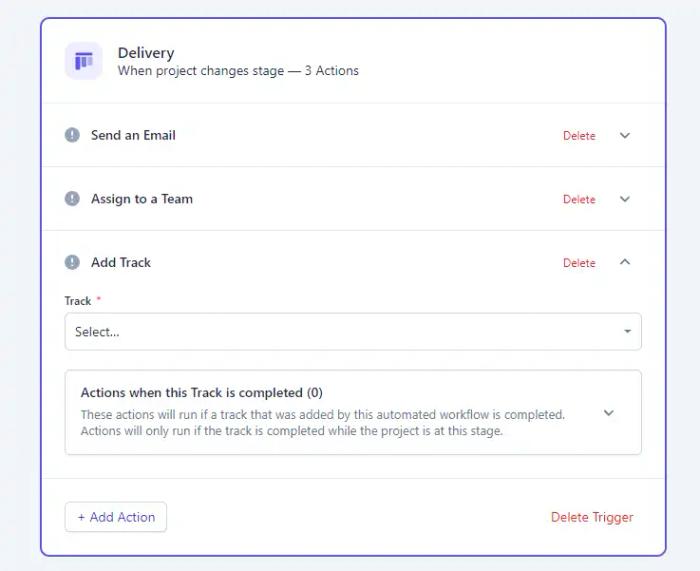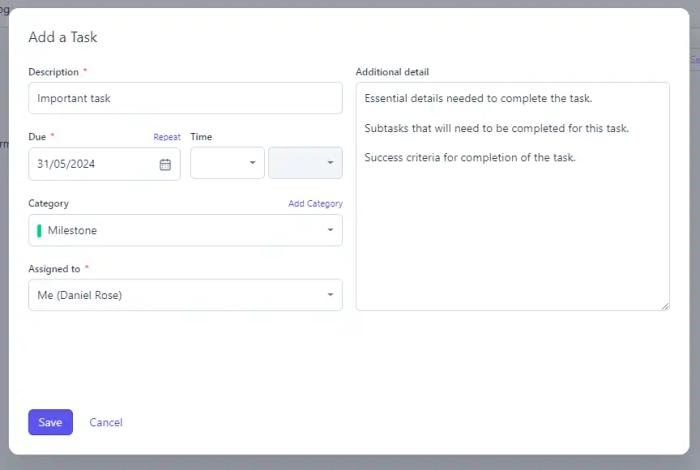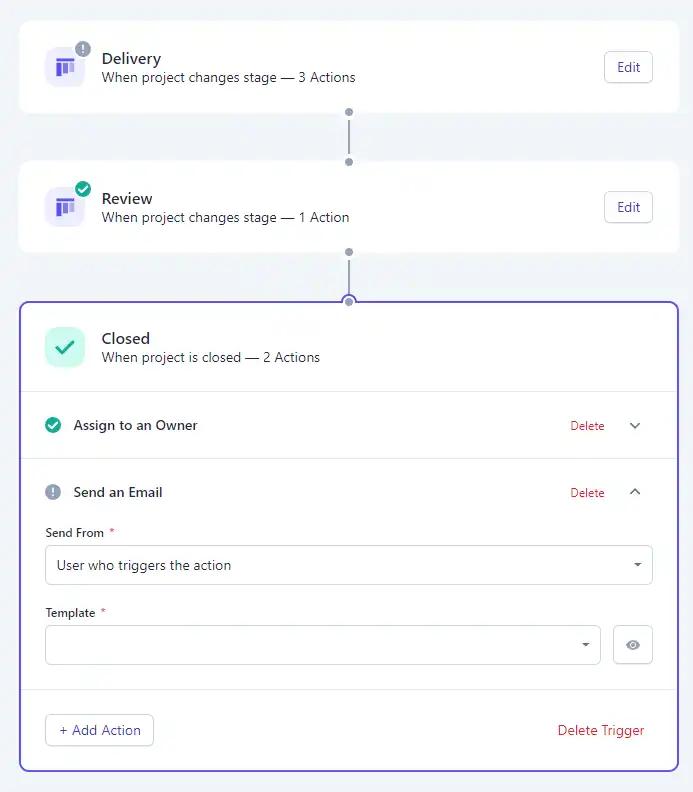Startups are an important and vibrant part of the business landscape, known for their fast-moving and creative environments. Unfortunately, these same factors can also make it challenging.
Startup teams frequently find themselves overwhelmed by rapidly changing priorities and minimal resources, making it difficult to manage projects effectively. This can lead to burnout and compromise the quality of work, threatening the startup’s growth and even survival.
The good news is that, with planning and preparation, strategic project management enables startups to make the most of their resources and scale their business — without compromising on the speed and creativity that makes them stand out.
In this article, we’ll examine the different challenges startups face in managing projects. We’ll then show you how to overcome those challenges with the right skills, software and best practices.
Project management challenges in startups
When you’re starting from scratch, you’re going to have to deal with limited resources. One survey found that 78% of small business startups rely on personal funds and income from another job. In addition to financing, startups often have limited human and technological resources.
This scarcity makes it challenging to allocate resources effectively across projects, especially when you’re still trying out different ideas. Balancing the need to innovate with the necessity of maintaining day-to-day operations requires skillful resource management and strategic planning.
Startups also have to be ready to pivot based on market feedback, investor input or other changes. This dynamic environment requires a highly adaptable and flexible approach, including the way you handle projects. Traditional project management methodologies may be too rigid to keep pace with the constant evolution of your startup’s goals and strategies, resulting in projects that are already outdated before you complete them.
As your startup begins to grow, you’ll face new challenges. Small and simple projects gradually become more complex and harder to oversee as you expand your business. Along with managing larger teams, you’ll likely also have to introduce new processes, tools and technologies to support your growth. Tackling larger projects while maintaining quality and efficiency can be tricky, especially if you don’t yet have well-defined business processes or project management frameworks in place.
Key skills for effective project management
While there are plenty of challenges, the right skills can help you face them with confidence. Here are some of the key skills that can improve project management within startups:
1. Agility and flexibility
When everything around you can change overnight, the ability to adapt and pivot quickly is crucial in startups. For project managers, that means accepting that yesterday’s carefully prepared project may no longer be relevant.
Although it might feel hard, you must be ready to reassess and adjust project trajectories as new information and opportunities arise. This skill ensures your startup remains competitive and can capitalize on unexpected opportunities or navigate around sudden obstacles.
2. Risk management
Startups inherently face high levels of uncertainty and risk. In the US, only 76.8% of businesses that opened in March 2022, were still around after 12 months. To ensure you’re not part of that statistic, you need to know how to handle challenges when they arise.
While it’s impossible to plan for every eventuality, project managers should be looking ahead as best they can to identify potential risks early, assess their impact and work out how they’ll deal with them. This proactive approach to risk management helps startups navigate those precarious early days and increases the chance they’ll be able to grow.
3. Effective communication
Lean teams are common in startups, meaning team members must wear multiple hats. Project managers must be able to communicate clearly and concisely with their teams, explaining the project goals, expectations, changes and feedback across all levels of the organization.
Good communication fosters a culture of transparency and collaboration, essential for rapid problem-solving and innovation. It also helps project managers motivate team members and drive projects to completion by providing regular relevant feedback.
4. Resourcefulness
With limited resources being one of the biggest challenges, it shouldn’t come as a surprise that resourcefulness is a critical skill for project managers in startups. You need to be comfortable getting the most value out of what you’ve got, which sometimes means getting creative to find different ways to accomplish your goals.
For example, while you might have your eyes set on a big expensive software package, are there free alternatives that would be just as effective? If you’re trying to create a marketing campaign, finding unique ideas for guerrilla marketing is likely to be more cost-effective than trying to create a prime-time TV advert you can’t afford to air.
Project management software recommendations
Even when you only have a small team to work with, that doesn’t mean you have to do all your planning on the back of a napkin. Project management is a lot easier with dedicated software, enabling you to quickly share ideas, review progress and scale up your plans as the business grows. Here are some of the best project management tools for startups.
Task management tools
Every project is made up of smaller tasks. These tools help organize, prioritize and track those tasks’ progress. By streamlining the task creation process and giving you an easy way to manage them, you’re far more likely to see the project through to completion.
Top task management tools:
Collaboration and communication platforms
Communication is one of the key skills for project managers, and having the proper tools ensures that your words always get heard. These apps facilitate seamless collaboration among team members, regardless of their physical location, and ensure that everyone stays on the same page.
Top collaboration and communication platforms:
Time-tracking software
Time is one of your most valuable resources, so managing and optimizing how you spend that time is essential. Time-tracking tools enable you to monitor how much time is spent on various tasks, aiding in workload management and project billing.
Top time-tracking software:
Project planning and scheduling software
Of course, you can’t talk about project management tools without considering these dedicated solutions. These tools are designed for planning out projects in detail, scheduling tasks and defining timelines. With features like Gantt charts, project timelines and workload views, you’ll be able to tackle every aspect of your project using these apps.
Top project planning and scheduling software:
Customer relationship management systems
Whatever type of startup you’re working in, you always need to keep your clients and customers in mind. Customer relationship management (CRM) software helps you focus on all of your contacts, enabling you to track all of your interactions and nurture those relationships.
The best project management CRMs build on those relationships and organize your projects while taking your customers into account. You’ll also get a lot of the important features that we’ve already discussed, enabling you to manage your projects from one cost-effective platform.
For example, Capsule CRM helps startups with:
- Improved task management
- Team collaboration
- Workflow management
- Visual dashboards
- Analytics and insights.

Capsule comes with a mobile app so you can carry out CRM tasks and manage your projects from any location, whether you’re in your office or on the road. You can also use Capsule’s integrations to connect your favorite software tools so you can collate all your important data in one place.
Learn more about how a CRM for startups can help your business today.
Best practices for project management in startups
You can have all of the right skills and tools for project management but, if you don’t know how to use and implement them properly, then you’re still going to struggle. Here are some of the best practices for project management to increase the chances of a successful outcome.
Used a defined project management process
We’ve talked about the importance of flexibility, so the idea of using any type of structured process may seem counter-intuitive. However, some project management processes are specifically designed for dynamic environments.
For example, Agile project management methodologies (such as Scrum and Kanban) allow for flexibility, continuous feedback and rapid iterations. They emphasize the importance of delivering value early and often, fostering a culture of collaboration and continual improvement. This is great for startups, making it easier to adapt to changes and pivot when necessary.
Make use of automation
When you’re trying to adapt and adjust your project, anything you can do to reduce your workload and free up time is worth considering. Automation is particularly useful, allowing you to offload many of the repetitive admin tasks like data entry and sending progress reports.
Review your project tasks and look for any basic activities that could be handled with workflow automation. For example, Capsule’s Growth plan lets you automatically assign tasks to team members, send templated emails, update task statuses and more.

But don’t automate everything
With new technologies and advancements in AI, more tasks can be automated without compromising on quality. For example, Capsule’s AI content assistant helps users get the first draft of email copy written quickly, ideal when you’re stuck staring at a blank screen.
However, even if you technically can automate a task, it doesn’t necessarily mean you should. While it makes sense to offload repetitive work, certain tasks are still best done by a person. This includes setting up projects and monitoring progress.
“Workflow automations are great because they standardize your admin,” explains Keith Weir, Customer Success Team Lead at Capsule. “But sometimes people want everything automated. They’ll create loads of automated projects, then they can’t keep on top of them all. You still want to be on top of the work that you’re generating and take responsibility for it.”
A step-by-step guide to better project management
Whether you’re in the early stages of planning a big project or if you want to optimize your existing projects, these steps will help you tackle your work in a structured way while still retaining flexibility for the best results.
Step 1: Define your project scope and objectives
Before you begin any startup project, take the time to clarify the project’s scope and objectives. If you’re not sure where to begin, the SMART goal-setting framework covers all the key aspects:
- Specific. What are the exact outcomes or improvements you want to achieve?
- Measurable. How will progress and success be measured quantitatively?
- Achievable. Can your startup realistically achieve these goals with the available resources?
- Relevant. Does the project align with your startup's strategic objectives and market positioning?
- Time-bound. What are the deadlines for each project phase?
Get your team involved in the planning process, taking advantage of their different experiences and areas of expertise to ensure the scope is accurate and that you’ve accounted for any potential obstacles.
Step 2: Develop a project plan
Transform overwhelming projects into manageable tasks. Break down the project into key components, assigning tasks and subtasks to team members based on their skills and workload. Set milestones and deadlines for each segment to ensure consistent progress.
Balance is key; while each task should be detailed enough to prevent ambiguity, avoid micromanaging every aspect, which can stifle progress and overwhelm your team.

Step 3: Monitor and adjust as necessary
Even the most meticulously planned projects can encounter unexpected changes, especially in the startup world. Stay agile — regularly review your project status and adapt as needed while keeping your core objectives in sight.
Schedule regular review sessions and use project management software for real-time updates. Tools offering different views (e.g., checklists, Kanban boards) can provide fresh perspectives and help track progress effectively.

Step 4: Maintain clear and continuous communication
Open communication channels contribute to a project’s success. While the smaller teams commonly found in startups make it easier to keep everyone up to date, you still shouldn’t rely on water cooler conversations to share important information.
Establish clear protocols for sharing updates and concerns. For example, who needs to be informed in the event of a potential delay? Which team members are responsible for posting updates? Use your startup’s tools, such as your CRM, to automate communication and ensure all stakeholders are promptly informed about project milestones and transitions.

Step 5: Close the project and reflect
Once the project’s completed, take a moment for you and your team to reflect. Was the project a success? If so, what factors contributed to that success? If not, what could you have done differently to get a better outcome?
This isn’t about assigning blame or trying to take credit; The goal is to take an objective look at your project and the results to see what you can learn for future projects. Documenting these insights fosters a culture of continuous learning, fine-tuning your startup’s project management strategies and boosting overall performance.
Successful projects for successful startups
Project management in startups can be stressful, especially when you find your plans changing due to unforeseen circumstances. However, by cultivating essential skills, embracing innovative project management tools, and adhering to best practices, your startup can overcome these obstacles and continue to grow.
Discover how a CRM can help your startup manage current and future projects. Enjoy Capsule’s free starter package or start a 14-day free trial and see how Capsule’s features can help you save time and deliver outstanding startup projects.




